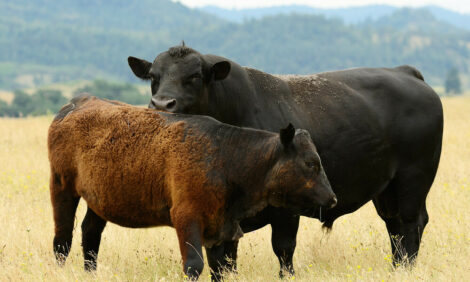



Quartet Of New Grass Varieties From AFBI
NORTHERN IRELAND, UK - Four new forage grasses, bred by the Agri-Food and Biosciences Institute, will be released at the Royal Ulster Agricultural Society’s Winter Fair, further extending the portfolio of varieties which has been specifically bred for use on local farms.These four new grasses have been developed by the AFBI Loughgall programme over the last 12 years, representing a very significant financial investment by DARD and the seed specialist company Barenbrug.
In recent years, AFBI-bred varieties have increasingly been used on farms throughout the UK and Ireland as farmers appreciate the value of using grasses which have been selected and evaluated under local climatic conditions. Varieties such as Navan, Spelga, Tyrella, Portstewart and Drumbo have had a huge impact on the grassland sector, setting new standards for yield, herbage quality and persistency.
The four new varieties to be released at the Winter Fair have all been listed by DARD in the 2011/12 Recommended List and details are as follows:
Moyola is a new early diploid variety, produced out of a cross between Moy and a New Zealand variety, with exceptional early spring and autumn growth and high resistance to crown rust. Moyola is a perfect variety for farms which can turn out stock to graze in early March, very similar to new Zealand varieties in terms of long-season productivity but with better winter hardiness.
For almost 20 years the AFBI variety Glen has been very popular on local farms, renowned for its high sward density, which is especially valuable on land subject to poaching. AFBI’s new intermediate diploid variety Copeland is a Glen replacement, producing dense leafy swards of high quality grass. There was a limited release of Copeland in spring 2011 and very positive comments have come back from farmers who were fortunate to get supplies of this new variety.
Seagoe, a new intermediate tetraploid is one of the most exciting varieties ever to be released from the AFBI programme, producing massive yields of quality grass under silage and grazing. In terms of maturity, Seagoe is mid-way between two other AFBI tetraploids, Malone and Dunluce although it is genetically unrelated to either variety. Demand for Seagoe is expected to be very high as this variety has produced a tremendous performance in Recommended List Trials throughout the UK and Ireland.
In the late maturity group, AFBI varieties Navan and Dunloy are already popular constituents in many seeds mixtures. The new release Dundrum has an excellent two-cut silage yield , with high digestibility and will be a perfect complement for AFBI’s new late diploid varieties Tyrella and Drumbo.
While the main objectives of the AFBI grass breeding programme include breeding for improved total yield, herbage quality and persistency, increasing efforts are being directed into breeding for better disease resistance. For example, in recent years, excessive rainfall in the autumn, such as the conditions we have seen recently, has provided perfect conditions for the onset of the disease leaf spot, caused by the fungus Drechslera siccans. Studies carried out at AFBI Loughgall have found that in the most severely affected varieties, up to 30 per cent of the leaf was affected. In affected swards diseased leaves eventually die off, effectively lowering grass quality for both silage and grazing.
As well as using the main trial site at Loughgall, trials funded by Barenbrug in Aberdeen and Evesham, The Netherlands, France and Germany add valuable extra information, especially on disease resistance and winter hardiness, which is increasingly important considering the recent severe winters.
As a very high percentage of agricultural output from Northern Ireland is dependent upon grass, a steady supply of improved, high yielding and disease resistant varieties, able to cope with changes in farm management or environmental factors, is essential to the future of the industry.


